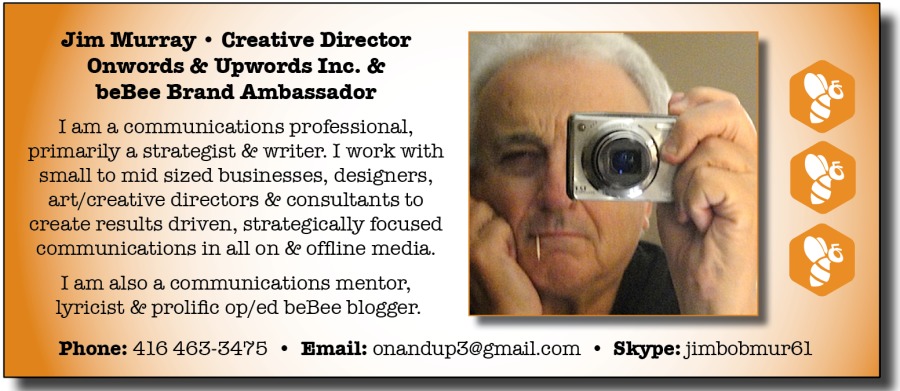One Writer’s Creative Methodology. Works For Me. Might Even Work For You.

“I wish I could write you a melody so plain
That would hold you dear lady from going insane
That would ease you and cool you and cease the pain
Of your useless and pointless knowledge”
~ Bob Dylan, Tombstone Blues ~
There are a number of very good reasons why Bob Dylan is considered to be one of the greatest living writers of our time and has a Nobel Prize to prove it.
One of them is because you can literally take any verse from the nearly 800 songs he has written and recorded and write a whole post or essay or even a Master's thesis about it.
The verse above is a good example of what I’m talking about. In it, he makes two powerful statements. One is about love and the other is about the world at large.
Only a writer who is either possessed by a demon or completely in control of his faculties can write like this.
Our minds are very cluttered. They are filled with all the flotsam and jetsam of living, plus all the thoughts we’re thinking, the plans we are making, the stuff we can’t forget from our education, the advertising messages that hit us with astonishing frequency and a lot of other things that just get stuck in our heads.
Learning to either shut that out and get down to what you are really feeling about what you are writing or, conversely, learning to channel all that “useless and pointless knowledge” into something constructive is the constant challenge every writer faces.
And not just every writer. I know that a lot of you out there reading this don’t consider yourselves to be writers. But because you have become enslaved by this content production marathon that we are all running, you have become writers, whether you like it or not.
Writing Is A Tricky Business
If you want to keep it from driving you crazy, you really need to develop some sort of methodology that works for you. And though I do believe it’s one of those things that you need to do for yourself, it doesn’t hurt to see what someone else’s approach entails.
Now I don’t claim to be a guru or a teacher or anything even close. But I do believe that sharing insights is a big part of why we’re here and writing posts in the first place. So here’s my two cents worth.
1. Nothing Good Happens Without An Idea.
Ideas are blossoming in your head all the time. The thing you need to do is realize that and pay attention. A lot of good things happen when you pay attention to your head.
It really doesn’t matter where the ideas come from, because I have learned that you have almost no control over the stuff that pops into your head.
e.g. The idea for this post came to me as I was taking a couple of Tylenols because I have a cold. I know the lyrics to almost all of Bob Dylan’s songs. I think about them a lot because, well, it’s amazing writing and I’m happy to carry a great deal of it around in my head. I even sing them to myself from time to time. But you don’t want to hear any of that.
2. The Idea Becomes The Challenge.
Once I had the idea in my head, which was very much an abstraction at this point, the challenge then became: How do I write something that would both explain the lyric and make a point or two about writing?
Well the lyric is more or less self-explanatory. But the interpretation is what’s important. My understanding of what Bob was getting at here is that the clutter we carry around in our heads all day is actually a form of pain.
If we can learn to set some of the clutter aside for a while, that will both alleviate some pain and free up some space to do, well, whatever we want. Write a song, or an essay or an article…whatever. But, most importantly, we’ll be able to do it without a lot of brain static.
So that’s the thought. And it begs the questions, how does one do that?
3. Actualizing The Idea In Your Head
I can only speak for myself but I personally favour getting out on my bike and riding. I find that particular activity frees up my mind and and literally blows a lot of other thoughts out of the way of the particular thing l want to focus on.
}I didn’t write this post when I got the idea. All I did was open a file and write out the lyric. Then I went for a ride and in my head went though several possible destinations using that lyric as a starting point.
It could have been a short story about two lovers. It could have been a highly focused essay on what happens to the human brain when it’s in a constant state of stimulation. It could have been a psychological exploration into the mind of Bob Dylan. It could have been a poem of my own about pain and loss…
It could have been a lot of things. But it ended up being a post about writing because I’ve been doing a lot of those these days and really like sharing my insights.
4. The Actual Writing
I don’t start writing until I have the whole piece in my head. Not all the words, because that’s the fun part. But the logic, the narrative flow and the resolution.
When I do start writing I find that the story more or less tells itself.
5. Post Production
After that, it’s really a question of doing what you do to get one of these things ready.
First, I read what I have written aloud. Reading aloud is important because you can hear an awkward phrase or an incomplete thought a lot easier than you can read one.
Then I go back through it and make corrections. Look for redundancies. Focus on style and narrative flow.
Does this make sense?
Does it make a point?
Does it resolve itself?
Does it feel like me?
These are the things you have to ask yourself and answer to your own satisfaction before you hit the publish button. Because if you are not in agreement with yourself, you will never publish an authentic piece.
Authenticity Separates The Wheat From The Chaff
People will forgive some awkwardness and structural flaws in your writing, because those are the kinds of deficiencies that 80% of the posts you read possess anyway.
But they won’t, no, they can’t, forgive a lack of authenticity. And the reason for this is simple. If whatever you are writing doesn’t feel like you, there’s really no point in letting anyone read it. Because that authenticity is the gateway to their getting to know who you are.
I have written nearly 1000 posts of this length or longer over the years, and so writing in my own voice comes pretty naturally to me. And if you have read any of my stuff here on beBee you will see that it’s all pretty consistent.
What I have outlined here is how I keep it that way. It may work for you. Or it just may get you thinking about creating your own method for assuring authenticity in your work.
I sincerely hope it does. Because that’s the kind of stuff I like to read and promote.
The Learning
• Find an idea that you think will make a good post.
• Clear your mind of the ‘useless and pointless knowledge' that clutters it through whatever means works for you.
• Think it through until it feels complete in your head.
• Write it out
• Read it aloud
• Fix it and read it again
• If it feels like you, publish it. If it doesn’t, tweak it until it does. Or scrap it and try something else.
You can do it. And to quote Bob Dylan again…”You will not die…it’s not poison”.

As usual, all comments, shares and likes are welcome and appreciated.
If your business has reached the point where talking to a communication professional would be the preferred option to banging your head against the wall or whatever, lets talk.
Download my free ebook, Small Business Communication For The Real World, here:
https://onwordsandupwords.wordpress.com/2013/11/24/small-business-communications-for-the-real-world/
All my profile and contact information can be accessed here:
https://www.bebee.com/producer/@jim-murray/this-post-is-my-about-page
All content copyright 2016 Jim Murray
""
Articles from Jim Murray
View blog
Whenever I write anything about America I have to take into account that it is actually two countrie ...

(This was originally written in 2020) · We’re having the worst snowstorm of the season so far as I s ...

I · can’t speak for all writers, because I’m only this one and that’s really all the opinion I am en ...
Related professionals
You may be interested in these jobs
-
refrigeration mechanic apprentice
Found in: Talent CA 2 C2 - 2 days ago
RepairUs Commercial Refrigeration Services Inc. Vaughan, CanadaEducation: Secondary (high) school graduation certificate · Experience: 5 years or more · Work setting · On-site customer service · Tasks · Provide customer service · Start up system and test for leaks using testing devices · Perform maintenance such as, recharging system with re ...
-
Counter sales representative
Found in: Talent CA C2 - 2 days ago
Uni-Select Montreal, Canada Full timeVous êtes unReprésentant de ventes au comptoiren quête de nouvelles opportunités passionnantes? Venez faire partie de notre équipe en plein essor, où vous aurez la liberté de bâtir votre rôle et d'accompagner la croissance de notre entreprise àLachine. · Que gagnez-vous en travai ...
-
kitchen helper
Found in: Talent CA 2 C2 - 1 hour ago
PK Magrath Inc o/a Popeyes Louisiana Kitchen Lethbridge, CanadaEducation: No degree, certificate or diploma · Experience: Will train · Tasks · Bring clean dishes, flatware and other items to serving areas and set tables · Clean and sanitize kitchen including work surfaces, cupboards, storage areas, appliances and equipment · Handle and store ...




Comments
Robert Cormack
7 years ago #11
Julio Angel 🐝Lopez Lopez
7 years ago #10
Jim Murray
7 years ago #9
Hey Steve Brady. You have it now. Also, tomorrow I'm going to make a post with the entire series of these posts. A few people have told me that they would like to have it as a reference. I was flattered
Jim Murray
7 years ago #8
Tony Rossi. I've been doing this for so long that it usually comes out pretty close to totally baked. Remember it's op/ed so I'm not using a ton of "facts".
mohammed khalaf
7 years ago #7
Phil Friedman
7 years ago #6
Jim and Kevin, as in all things, there are exceptions. Even when a piece is completely laid out in your mind's eye, there are times when the writing and the thinking take an unexpected turn. Which is one reason not to fully commit to a title first. And which is something, I suggest, a writer should remain open to -- for in my experience, some of the best pieces come out of the realization mid-stream that the real point is not necessarily what you started out thinking it was. Good post, Jim. Thanks.
Jim Murray
7 years ago #5
Thanks
David B. Grinberg
7 years ago #4
Jim Murray
7 years ago #3
Thanks Tony Rossi. Glad I could be some help.
Jim Murray
7 years ago #2
I am both Kevin Pashuk. But not in equal measures.
Kevin Pashuk
7 years ago #1